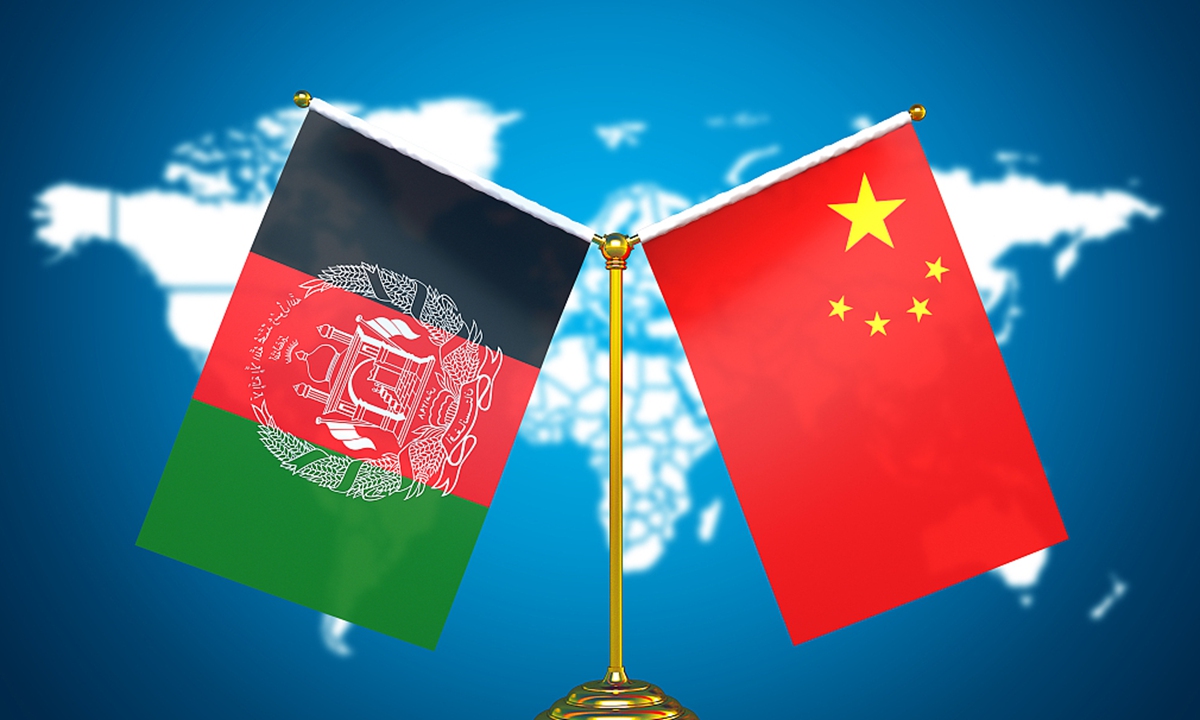China-proposed regional connectivity a 'specific and concrete step' to work on Afghan peace: analysts

China Afghanistan Photo:VCG
China urges Central and South Asian countries to forge a closer regional connectivity partnership through high-quality cooperation under the Belt and Road Initiative (BRI), Chinese State Councilor and Foreign Minister Wang Yi proposed on Friday. Analysts say the move is a concrete plan to glue regional countries together on working on a solution for Afghan peace.
Wang made the remarks while attending a high-level international conference themed "Central and South Asia: Regional Connectivity, Challenges and Opportunities."
The minister said China is ready to work with all parties to align their infrastructure development strategies, push forward "hard connectivity" and "soft connectivity" in parallel, and build an all-dimensional, multi-faceted and sustainable connectivity network.
China will continue to work with the international community, especially Afghanistan's neighboring countries, to facilitate peace talks through the Shanghai Cooperation Organization and other mechanisms, Wang said.
According to media reports, leaders of countries including Afghanistan and Pakistan, foreign ministers of countries from China, Russia, Kazakhstan, Tajikistan, Turkmenistan, India, Bangladesh, the Maldives, Saudi Arabia, Kuwait and Turkey, the United Nations secretary-general, and the European Union high-level representative for foreign affairs and security policy attended the conference in person or via video link.
A better regional connectivity in this region relies heavily on the situation in Afghanistan, thus making such a proposal a concrete plan from China to glue regional powers together in finding solution for the Afghanistan situation, said Qian Feng, director of the research department at the National Strategy Institute at Tsinghua University. Qian added that since a grand peace solution will take time to frame, such smaller steps can serve as kick start.
Qian pointed out that China's approach in providing solutions to the Afghan issue features a "constructive involvement," which means joining hands with Afghanistan on working with BRI. He emphasized that no matter how the situation evolves, Afghanistan has the needs to improve ties with China, and ameliorate its social and economic conditions.
Qian also said that given current political and security situation in Afghanistan, the options of China filling that power vacuum left by US hasty pullout, as well as throwing large-scale investment in the country, won't be considered in short term.
"Our government always emphasizes on letting Afghan people solve Afghan problems, and we will stick to that," Qian noted.
A delegation of Afghan political leaders led by top peace official Abdullah Abdullah left for Qatar on Friday to resume talks with the Taliban as violence escalates in the country.
In an interview with the Global Times this week, Afghan Ambassador Qaem called for more international cooperation, as current mechanisms, despite working, are not up to the level of Afghanistan's expectations.
"The only place where they could really cooperate, and at least there could be a starting point to cooperate between these rivals, if I can call them that, is Afghanistan," said Qaem, referring to China, the US and India.
